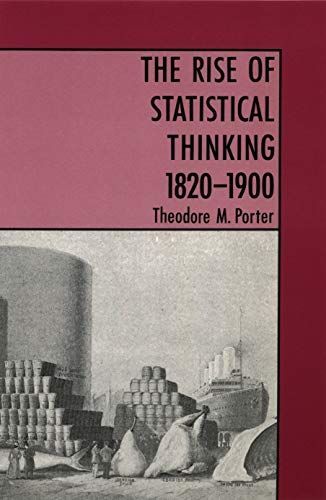
The Rise of Statistical Thinking, 1820-1900
Not since the invention of the calculus, if ever, has a new field of mathematics found such extensive application as statistics in the twentieth-century. This book presents thoroughly and lucidly the diverse nineteenth-century origins of the mathematical tool of our day. Emphasizing the debt of science to nonspecialist intellectuals, Theodore Porter describes in detail the nineteenth-century background that produced the burst of modern statistical innovation of the early 1900s. He shows that the natural and social sciences were surprisingly interdependent. Statistics arose as a study of society, the science of the statist, and the pioneering statistical physicists and biologists, Maxwell, Boltzmann, and Galton, each introduced statistical models by pointing to analogies between his discipline and social science. The author also examines significant philosophical issues raised by the development of statistics in the 1800s. For a time, the evident success of statistical social science was held to be inconsistent with human free will. Gradually a consensus was developed that the need for statistical methods arose from the diversity of phenomena, which precluded explanation in detail. Debates concerning the nature of statistical knowledge were central to the new indeterminism that began to emerge at the end of the century. -- from back cover.